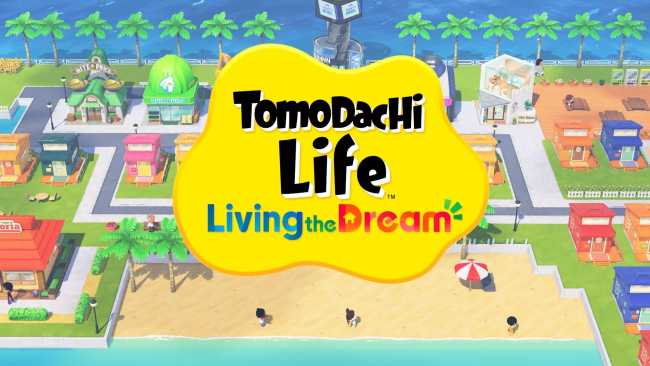8 essential tips for launching a startup company
The barriers to creating your own startup company have never been lower. Eight leading startup founders explain how to go about it.
Brad Weaver from Nine Labs will be at Generate London to help you make more money. He'll be hosting an all-day workshop on how to start and build a profitable design business, and in his session on pricing your work he'll look at specific ways to tackle pricing and profit in your business. Book now!
Why work for someone else when you can create your own startup company and keep all the money? Here, eight prominent entrepreneurs offer their advice on how to create a startup company and make the move that can change your life and potentially make your fortune.
Also read: Pro tips for a successful side project.
01. Actually start!
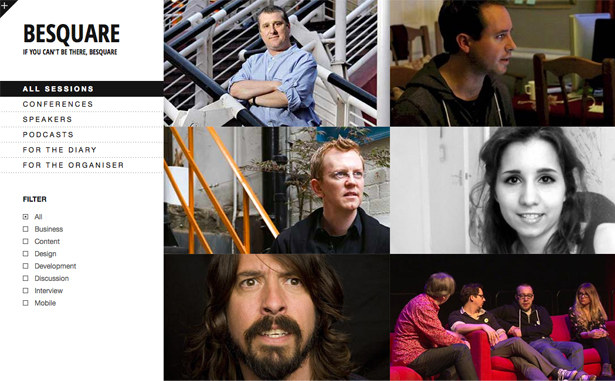
Craig Lockwood's startup company portfolio includes besquare.me, handheldconf.com, founderscast.com, pixelpicnics.com and a careers platform for teens, which is currently in production (tentatively titled 'Wanna Be A Spaceman?'). "Finding something that doesn't exist which would make my life better has always been the main driver for my projects," he says. "I figure that if I would use something, surely somebody else would."
Lockwood's advice for somebody starting their own web business? "Actually start," he responds. "Open a text editor and write your first line of code. Putting things off is a sure sign that you are not passionate or that you don't 100 per cent believe in the idea.
"Don't necessarily worry about where an income will come from - a good product/service will always find a way to make money."
02. Build something you believe in
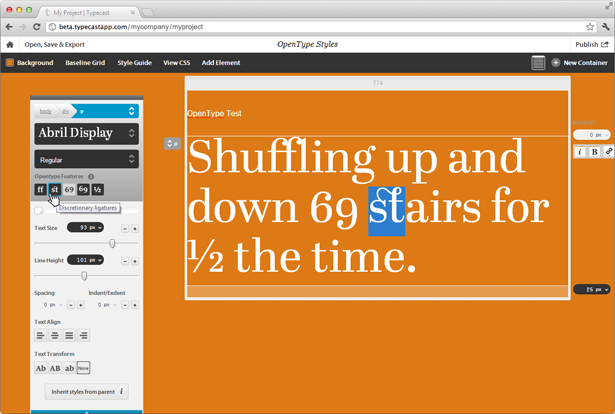
Paul McKeever co-founded design startup company Front in 2000, then changed direction to work on type app Typecast in 2011 and joined Monotype in October 2012. He describes his current venture as "the story of a switch from being part of a service company, through building a new product then being acquired and becoming part of a larger company.
Daily design news, reviews, how-tos and more, as picked by the editors.
"In 2011, we at Front decided that we wanted to try building some of our own ideas to switch from being a service company. We were already working side projects to make our own design process easier and were getting equally excited and frustrated with web typography. So one of those projects became Typecast, a browser-based tool that helps designers experiment with type."
Build momentum
"I think that if you're starting something it should be because it's something that you truly believe in and care deeply about," he says. "Most of the time when you're getting started, it'll feel like your Sisyphus, the mythical Greek figure who spends his day pushing a boulder up hill, never succeeding and starting each day facing the same impossible task.
"That's what it felt like to me when we were building Typecast. Creating a new product takes an unimaginable amount of determination. Hopefully, along the way you build momentum and the boulder gets easier to push.
"But on the days where you're getting flattened as it rolls back down hill, the best form of motivation is that you want to succeed not for fame and fortune but because you think what you're doing will make the world a better place."
03. Embrace the competition
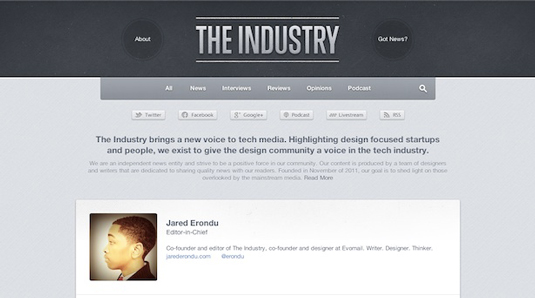
Co-founder of startup company The Industry and Evomail, Baltimore-based Jared Erondu created The Industry with the intent of "covering design-focused startups and people. 14 months later, we’ve grown into a well-respected blog and podcast".
He'd give this advice to people thinking of starting something: "If you're thinking about it everyday, you're probably passionate about it. So just put your mind to it and do it. As for competition, embrace them, learn from them. If you have many, it probably means you're in the right place. As for age, it's just a number, I'm 18."
04. Find the right people
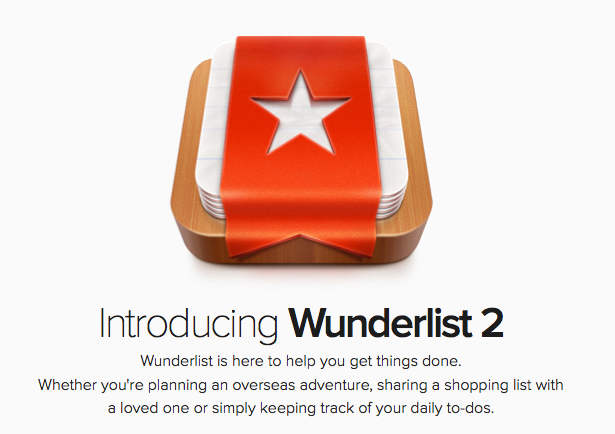
Berlin-based Christian Reber founded startup company 6Wunderkinder in August 2010 together with five friends "with the goal to create a productivity tool for the mass market".
After only two months of development they released Wunderlist, which reached its first million users within under 280 days. That was faster than Evernote, Twitter or Foursquare reached their first million users. Today, it's the most downloaded task manager in the world and available in over 25 languages on seven platforms.

Your project doesn't suck
His advice to would-be web entrepreneurs? "I think that, in the beginning, courage is most important thing you need to start your own company. People will tell you why you will fail or why your product sucks. It’s important that you find the right balance of listening to valuable feedback (and searching for it) and at the same time ignoring the naysayers.
"The second piece of advice would be about finding the right people. It’s important that you understand what you are good at and what not. Then, find the right team that shares your vision."
05. Don't spend ages on planning
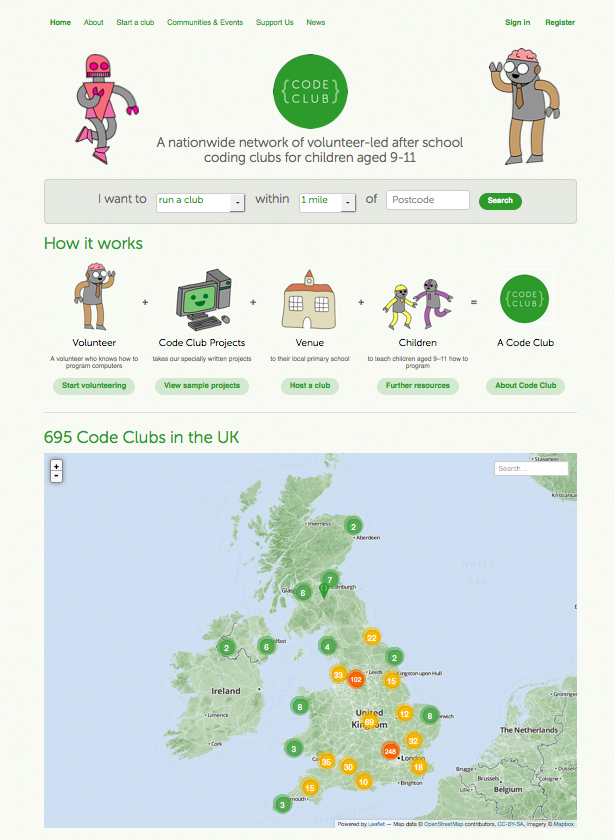
London-based Clare Sutcliffe is CEO at startup company Code Club, while came out of a plan to create a 'useful hackday' at the New Adventures conference in January 2012. Here's her advice to anyone wanting to follow in her footsteps: "When we started Code Club we didn't spend ages on planning. We just made a plan and got on with it. We continue to do that to this day. It's one of the reasons we've grown so quickly.
"We have two sayings that push us forward and let us make decisions quickly. The first is 'Good artists ship' and the second is 'Don't ask for permission, ask for forgiveness later'. So my advice would be 'do your research, then just get on with it'."
06. You don't need capital or partners
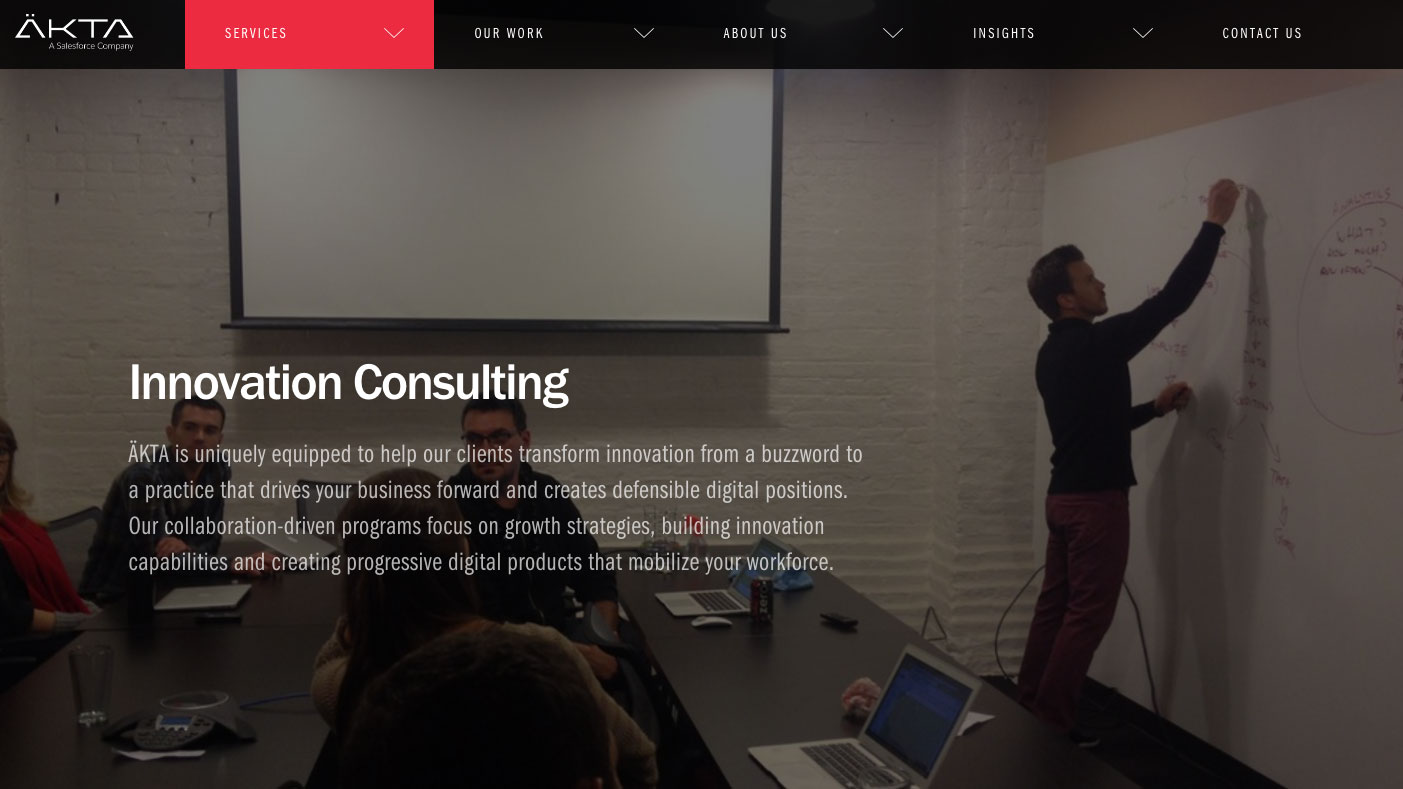
John Roa started user experience-focused design agency ÄKTA when he sold a video-game marketing company he founded in LA in 2007 and came to Chicago looking for a new startup company. "I saw a massive need for a boutique-sized studio that focuses on user experience for a diverse array of digital platforms - so I started ÄKTA," he explains. "Three years later we have 21 employees, a 5000 sq/ft loft studio and are growing like crazy nationally and internationally."
What advice would he give to people thinking of starting something similar? "Stop thinking about it and start. You don't need a business plan, investment capital or partners.
"Because of the perceived risk and how complicated it seems, not enough people who say they are entrepreneurs actually start businesses. Embrace the failure that will surely come, and do it again. If you can't stomach failing again, you probably aren't cut out to be an entrepreneur."
07. Disruption happens at a systemic level
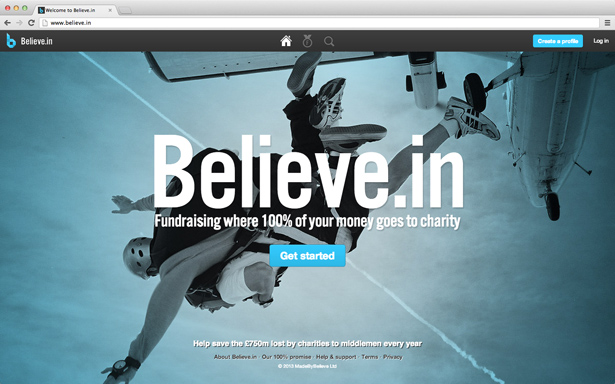
Matthias Metternich and Will Cookson are co-founders of startup company Believe.in, an online fundraising service for charities that was founded in London in May 2011. The two met at the creative agency Poke where they worked on product and service design for a number of major brands.
"A place like Poke brings people of a certain culture and ethos into the same space," says Metternich, "and Will and I found that we both shared a deep passion for how to blend commercial thinking, design and technology together to create companies that evolve industries of significant societal relevance.
"From sketches on napkins, we graduated to nights and weekends and then to trading consultancy for free office space. Juggling two full-time jobs presents its challenges and it was not until we attracted some of the brightest investors in the world, quit our jobs and hired brilliant people - that the venture was truly on its way."
Interfaces aren't everything
What advice would he offer to others? "Too many startups focus on surface level issues. For example, on how to render existing content differently, or present aggregated data through a variety of complex graphs. Interfaces are important, but not everything.
"Good advice is generally relative, but our tip is to look beneath the surface and beyond the interface through to the problems that pervade the systems we lean on day in and day out. True disruption happens on a systemic level - after which ingenuous interfaces and design make simple, elegant and beautiful what were complex problems that few ventured to solve."
08. Little goes as you expect
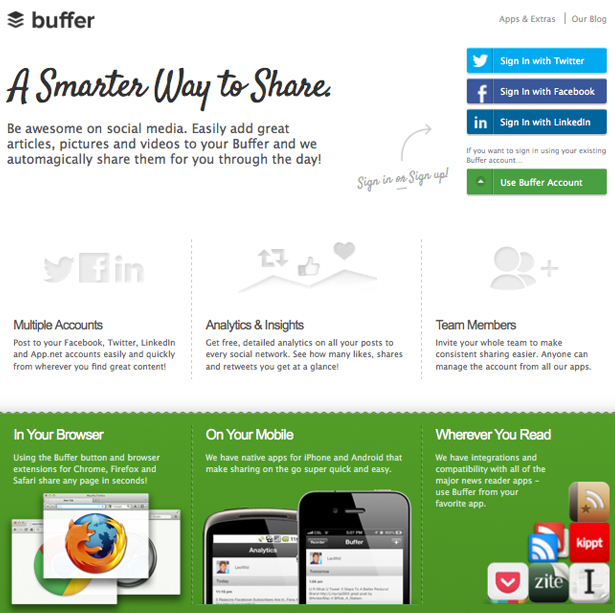
Now based in San Francisco, Joel Gascoigne started social app Buffer from his bedroom in Birmingham, UK, as a way to help individuals and small businesses with posting more consistently to Twitter.
"After couple of months I had my first paying customer and my co-founder Leo joined me. Together we grew the company to 25,000 users and around $2000 in monthly revenue.
"We then jumped on a plane to San Francisco and got into a startup accelerator called AngelPad. After AngelPad we raised $450,000 from great investors and I've been learning a huge amount along the whole journey. Today, we're a team of 11, have 600,000 users and we generate $100,000 per month."
Stick at it
Here's his advice to people thinking of starting a web business: "I blog regularly to try and help founders and I often have Skype calls and coffee meetings with early stage entrepreneurs. I think the single best piece of advice I could give to anyone thinking of starting something is: to start something.
"My previous venture was a failure, but I started and stuck at it for one and a half years, and without those 18 months of failure and learning I would not have been able to start and succeed with Buffer.
"Once you start and are on that path, everything changes. Little goes as you expect, and you learn more with every new day."
Want more advice on how to price your work and build a profitable design business? Don't miss Brad Weaver's session and workshop at Generate London on 21-23 September. Get your ticket now!
Have these helped? Do you have any tips to pass on? Share them in our comments section below...

The Creative Bloq team is made up of a group of art and design enthusiasts, and has changed and evolved since Creative Bloq began back in 2012. The current website team consists of eight full-time members of staff: Editor Georgia Coggan, Deputy Editor Rosie Hilder, Ecommerce Editor Beren Neale, Senior News Editor Daniel Piper, Editor, Digital Art and 3D Ian Dean, Tech Reviews Editor Erlingur Einarsson, Ecommerce Writer Beth Nicholls and Staff Writer Natalie Fear, as well as a roster of freelancers from around the world. The ImagineFX magazine team also pitch in, ensuring that content from leading digital art publication ImagineFX is represented on Creative Bloq.
